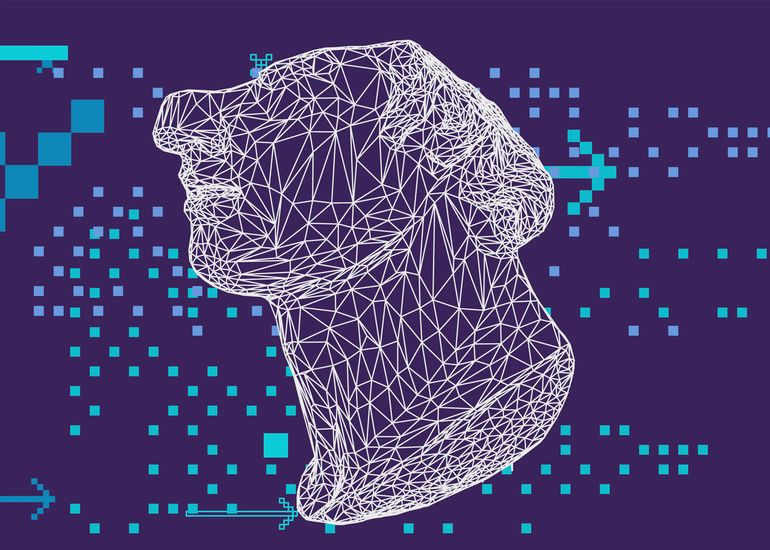Inauguration of the UNESCO Chair on Digital Humanism
TU Wien Informatics launches the first UNESCO Chair on Digital Humanism to address the ethical, societal, and political challenges of digital technology.

May 15th 2023
- 17:00 – 19:00 CEST
- TU Wien, Campus Getreidemarkt, TUtheSky
-
1060 Wien, Getreidemarkt 9
Bauteil BA (Hoftrakt), 11. Stock, Raum BA11B07
Technology profoundly shapes the world we live in. From AI and automated decision-making to surveillance, fake news, digital sovereignty, challenges of sustainability, and more. Digital Humanism uncovers the changes and disruptions digital technology inflicts on our society and environment.
The UNESCO Chair on Digital Humanism aims at shaping the development of digital technologies and policies toward human rights, democracy, participation, inclusion, and diversity. The Chair fosters interdisciplinary collaboration and establishes strong links with partner universities, especially in the global south, through research and education. Moreover, it aims to develop teaching curricula reflecting the topics of Digital Humanism; to include interdisciplinary methods into technical courses at TU Wien; to develop and adopt ethical research policies following UNESCO’s Recommendation on Ethics of Artificial Intelligence; and to organize recurring events to exchange and develop research agendas with related research initiatives. The chair will further act as a networking hub, connecting partners and activities of the international Digital Humanism initiative of TU Wien and the Center for Artificial Intelligence and Machine Learning (CAIML).
With this event, TU Wien is celebrating the inauguration of the UNESCO Chair on Digital Humanism at TU Wien Informatics and the appointment of Peter Knees as Chairholder and Julia Neidhardt as Co-Chairholder.
Video
If you watch this video, data may be transmitted to third parties.
Watch on YouTube: https://youtu.be/K4nvH4-WMKU
Program
Welcome Address and Statements
- Gerti Kappel, TU Wien Informatics Dean, video
- Sabine Seidler, Rector of TU Wien, video
- Martin Polaschek, Austrian Federal Minister for Education, Science and Research, video
- Gabriela Ramos, Assistant Director-General for the Social and Human Sciences of UNESCO (video message), video
- Christoph Thun-Hohenstein, Ambassador and Head of Directorate General for International Cultural Affairs, Ministry of European and International Affairs, video
- Michael Wiesmüller, Head of Department for Key Enabling Technologies for Industrial Innovation, Ministry for Climate Action, Environment, Energy, Mobility, Innovation and Technology, video
- Veronika Kaup-Hasler, Executive Vienna City Councillor for Cultural Affairs and Science, video
Inauguration: UNESCO Chair on Digital Humanism
Peter Knees and Julia Neidhardt, Chairholder and Co-Chairholder, video
Panel Discussion: “Progress at the Cost of Humanity? How to reclaim Humanism in the Digital Age.”
- Input statement by John Shawe-Taylor, Director IRCAI, UNESCO Chair in AI, video
On the panel: video
- John Shawe-Taylor, Director IRCAI, UNESCO Chair in AI
- Christiane Floyd, Professor Emeritus of Software Engineering at Universität Hamburg, Honorary Professor at TU Wien Informatics
Martin Fritz, Secretary General Austrian Commision for UNESCO
Antonio Casilli, Professor of Sociology at Télécom Paris
Peter Knees, UNESCO Chair on Digital Humanism
The event & panel discussion is moderated by the Dean of TU Wien Informatics Gerti Kappel.
We cordially invite you to a reception with food and drinks following the event.
We are happy to host the Amai Quartet, who will accompagny the event musically.
About Unesco
UNESCO is the United Nations Educational, Scientific and Cultural Organization. It contributes to peace and security by promoting international cooperation in education, sciences, culture, communication, and information. UNESCO promotes knowledge sharing and the free flow of ideas to accelerate mutual understanding and a more perfect knowledge of each other’s lives. UNESCO’s programs contribute to the achievement of the Sustainable Development Goals defined in the 2030 Agenda, adopted by the UN General Assembly in 2015.
About the Austrian Commission for UNESCO
The Austrian Commission for UNESCO (ÖUK) is the national coordination and liaison office for UNESCO. It was established on 14 September 1949 after Austria joined UNESCO in 1948. Initially part of the Austrian Ministry for Education, it broke away in 2001 and was newly constituted as a registered society. Its tasks include advising the federal government, the federal states and other relevant bodies on all questions that may arise from Austria’s membership in UNESCO; collaborating on the implementation of programs; informing the general public of UNESCO’s work and bringing institutions, specialist organizations and experts into contact with the organization.

